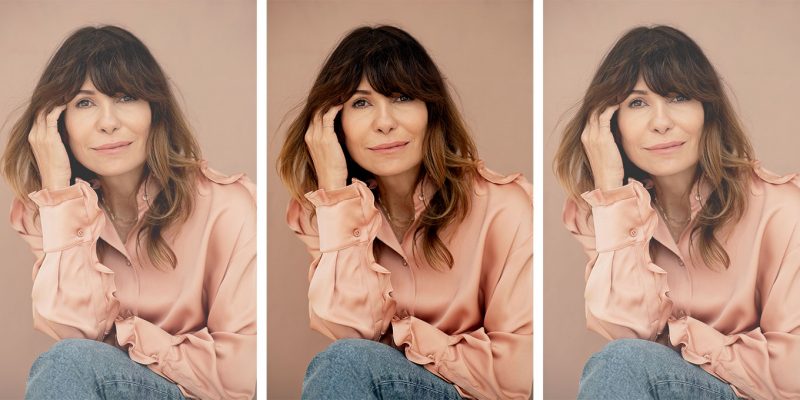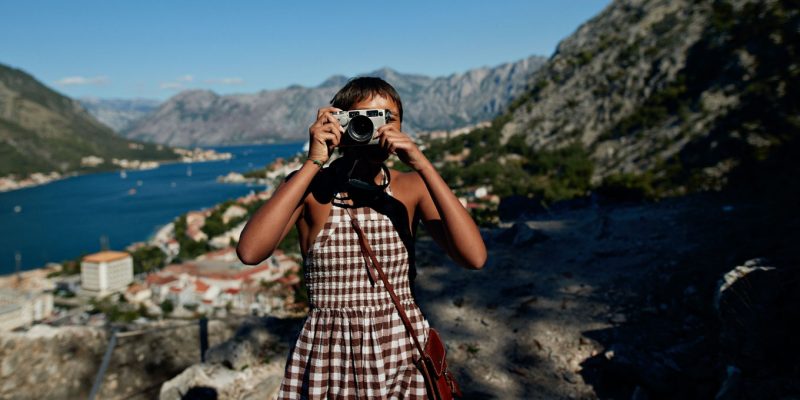Music
Alanis Morissette on Revisiting 'Jagged Little Pill' and Getting Glittery For Her New Album
"It's very fortuitous that I can perform the Jagged Little Pill songs without cringing."
by : Victoria DiPlacido- Jul 31st, 2020
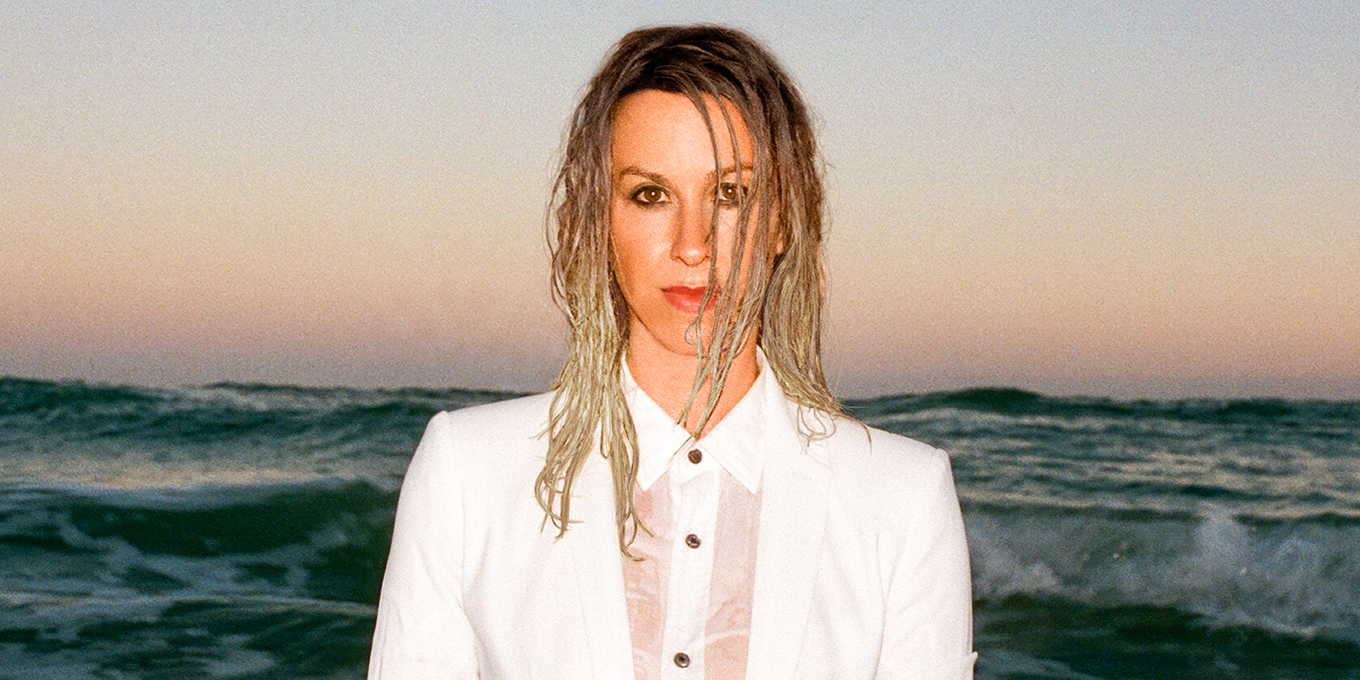
Shelby Duncan
After postponing its release for nearly three months due to the pandemic, Alanis Morissette’s ninth studio album, Such Pretty Forks in The Road, drops today. The Ottawa-born artist wrote the majority of her first album in eight years while dealing with postpartum depression after having her third child, son Winter Mercy (born last August), and the lyrical content of the album reflects her emotional state. “This is my first wave of my white flag / This is the sound of me hitting bottom,” she sings on “Smiling,” calling the album the “most vulnerable” record she’s ever made. Morissette spoke to us from her home in the San Francisco area about balancing privacy and vulnerability in her music, revisiting Jagged Little Pill at 46 years old (the 25th anniversary tour for the album has been rescheduled to 2021) and the meditation album she’s making next.
Congratulations on the new album. Are you ready for people to hear it?
I am. Every time a record comes out, the night before it’s released, I have this huge wave of terror. Then it goes away and I never feel it again. So, I think, on Thursday night at about 11:05 p.m., if you’re not busy or sleeping, you can imagine me having a full panic attack, but then you’ll know it goes away.
What are some of the things that help ground you when you feel like that?
The first couple of times it happened, I thought that sharing such vulnerable stories would be, you know, I would be scared following the release of the record. I’d be scared during the [media] interviews, but the fear quickly went away. It actually started to be empowering to speak about exactly what was going on. It does look like I have zero censorship and zero boundaries, but I actually do have a discernment about what I share. I protect people’s privacy. There’s something to be said about privacy. I’m not a fan of secrecy. There’s a big difference. So I don’t withhold information in order to create any kind of secrets, I just withhold information if I do it just protect the sanctity of people’s privacy basically. So everything I’m sharing, I can stand by and I can back up. But, right now, I’m actually more excited than scared. I don’t know why. It’s probably the most vulnerable record I’ve ever written.
There’s a lot of credit given to your ability to express anger in your music, but less about how vulnerable your lyrics are. What gives you the courage to write from that place?
There’s a few things that help. One is that when I’m writing, I’m writing alone, so there’s no one there to really hear the vulnerability. There’s zero censorship, no editing. When people ask how much time it took to write a record or write a song, I’ll just say, well, in this case it took 45 years to live it and then about 20 minutes to write it. The process of the writing of the song itself is really quick. Clearly, the living of the experience is a little more protracted. When I’m being vulnerable and authentic about my personal experience, I can back it up. I’m not dancing around white lies or half pieces of information. It’s not confusing for me. So if I’m asked a question, I have a relatively [straightforward] answer because it’s coming from that place of really feeling I have permission to be human, period – whatever that means. We’re such multitudinous people, we have so many parts: the brave part, the terrified part, the brazen rage-y part, the mute, paralyzed part. There’s billions of parts. So that’s to say that there’s billions of songs that could be written from any part.
Was that always your process? Was there anything you regretted releasing before you were able to get to that place?
Some of the songs I wrote, including “Ironic,” were not autobiographical, they were more sort of storyteller-y or super not precious. After “Ironic” was done, that’s when the autobiographical, I’ll write all the lyrics and we’ll write the music together, started happening and where I just really started to tell the story. And the truth is, those lyrics and that music came at the same time. The style of writing became established when we were writing Jagged Little Pill and then it stayed relatively consistent up until now. The only difference is that I have faith in it now, to the point where when I go in the studio, I’m no longer crossing my fingers and saying a prayer that something will come. I’m sure something will come, but I’m about to find out [it is].
It’s interesting what you said about privacy versus secrecy, and maintaining some anonymity in your lyrics. Why do you think you’re more interested in the fantasy of revenge versus revenge itself?
I don’t want to be in jail. [Laughs] That’s what I tell my kids. I’m like, you can want to punch someone in the face. I want to punch people in the face all the time. I just don’t do it. The impulse to act out is always there. The impulse to do anything is there. And that’s part of being a human being in theory is that we have a prefrontal cortex that’ll tell us, hmm maybe we shouldn’t do that. Maybe I’ll be arrested. Maybe I’ll ruin that relationship. Maybe that person will never speak to me again. But also, with regards to my songs, like I said, privacy is really important. Secrecy, not so much. I think secrecy divides us and privacy offers love. It’s a loving act I think, respectful.
I guess truth can be different things to people sometimes.
Oh yeah. Pretty much always, almost. That’s the best part of actually sharing the songs when I write them. I write them for myself, but then once I share them, people can make them their own. They can interpret them in whatever way they want. That’s not up to me. The writing of it is really cathartic for me. It didn’t wind up being healing, because as it turned out from my experience being in a relationship is what’s going to heal any kind of relational wounds from our past and almost all trauma is relational. So I thought I could get away with adjusting everything, like writing a song and then not having to deal with human beings. That didn’t work. I’m often intrigued by how people interpret it. It’s like a tool of divination almost; when someone tells me what their favourite song is, I can – in a very tiny way – get a sense of them.
What were some of the most cathartic songs for you to write on this album?
“Losing the Plot” and “Diagnosis” were written during some pretty dire PPD, postpartum depression, times. The song “Smiling,” too. I wrote most of these songs in Malibu with Mike Farrell. I just remember wanting to walk out into the ocean and not come back. It was pretty dark in some moments. It’s really hard to describe a state of being in a hormonal imbalance; it’s hard to put that into words. I do the best that I can to render something pithy or distill something complicated in a way that will make it understood because when I teach or talk or write or send an email, my goal is always to get the art in there. But I don’t want to confuse somebody. I want to be as clear as possible.
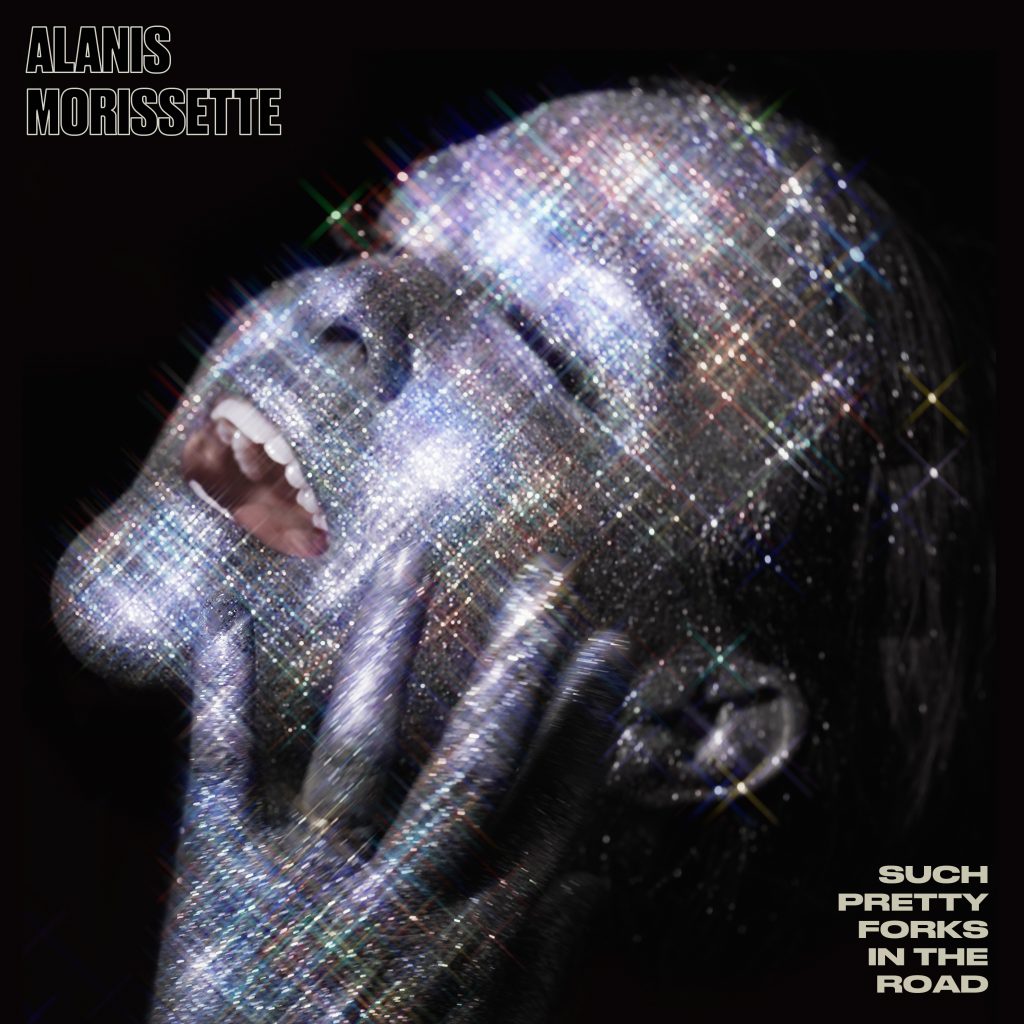
You’ve spoken highly of therapy. Was it something you were ever resistant to?
Never resistant to it. When I started to read, the first book I read I think was Cinderella Complex. My mom’s bookshelf was just riddled with [classic therapy] books from the seventies. I had an eating disorder. It was ongoing up and down for many years, but as a teenager, my first therapy session was to go talk about why I was throwing up my food and what was going on. I actually initiated that myself because I wasn’t up for any of the resistance around the fucking stigma of therapy, so I was just like I’m going to investigate this myself. I think I was 15 or 16 when I had my first session. It started a great relationship with the psychotherapeutic community. I had the pleasure of speaking at the Evolution of Psychotherapy Conference a few years ago in front of 10,000 therapists. One of the main things I said to all of them was just, thank you. You’ve saved so many people’s lives and helped so many people. The work that really good therapists do with people is such a quiet powerhouse.
Another thing I read you credit for keeping yourself grounded is being Canadian. What does that mean for you?
It means I’m awesome. [Laughs] Canadian or when I say, irretrievably Canadian, there’s a big sort of first do no harm thing to the Canadian culture. There’s a profound amount of curiosity that is still intact. When I first moved to Los Angeles, I didn’t speak for six months because, culturally, I was used to the dialogic reality of back-and-forth question and answer, follow-up question and follow-up question to the follow-up question. That’s kind of how we talk, back and forth. So then when I moved to Los Angeles – and Los Angeles is its own country for sure – it was more of a monological share at each other. So there’d be a monologue, no response, monologue, no response. And that was very weird for me. I was just waiting for curiosity and it just didn’t happen. So six months in, I was like, I’d like to start talking at some point, how do I do that here? So I learned how to become a little bit more American, which is speak when nothing is solicited of you. Very hard to do at first. Now I can’t stop.
The album art for Pretty Forks is a really triumphant image. What’s the story behind that art choice?
It’s my favourite cover that I’ve ever participated in. We did the music video for “Reasons I Drink” and we wrapped, so it was pretty late at night. I knew that there was a small window of opportunity because I was about to go to Europe, to shoot [a] cover. So I just asked [the crew] if they’d be up for a quick setup; it was midnight at this point. I was like, can we just do it? We were all slightly loopy. I have a funny photo of me breastfeeding my son while I’m being painted. It took about eight minutes to shoot and we had about a hundred different options and I picked that image and I love it so much.
So it wasn’t Photoshop, you got fully glittery.
I was fully glittery, which is one of my greatest joys, top ten.
You were supposed to tour this year with Liz Phair and Garbage for the 25th anniversary of Jagged Little Pill. What is it like revisiting those songs you wrote in your twenties?
I think it’s very fortuitous that I can perform the Jagged Little Pill songs without cringing. ‘Cause it could’ve gone either way right? I wrote it when I was 19, it could have been, I will never play these songs ever again, which would have been valid. But, thankfully, I can relate to the essence of what all those feelings are, the unrest and the inquiry and the rage and the joy and the infatuation. The only song that I would update just based on maturing, if that’s in fact what’s happened, is “Not The Doctor.” I wrote that kind of implying in the narrative, you’re over there, I’m over here, I’m not going to do your inner work for you. I’m autonomous. The content was really about me not knowing the degree of commitment to participate in the healing of each other’s wounds. I didn’t even know that I could, but now being married 10 years, I realized that if something’s up with my husband, that I’m his partner and I want to go in there with them and vice versa.
As a young artist looking for guidance in the industry, you said you reached out to other female artists for help and didn’t really get it. Now, as the more experienced artist, are you the one offering advice?
I would only offer someone advice if they asked me for it. The idea of offering someone advice if they don’t ask just seems violent to me. So I don’t really offer advice very much unless someone asks me, you know, tell me about unschooling or tell me about how to navigate backstage. Part of me also just kind of wanted to get my bearings and cut my teeth in my own unique way. While I had people like Madonna and everyone all around me – lord knows they were up for giving me advice – 99 percent of the time I would think, well, that’s awesome and that’s the way you would do it, but I’m really curious to see how I would navigate this. In retrospect, I did it in a bit of a lonely way. If I could go back in time, I might’ve – I don’t know how I would’ve done it – but somehow had a few more guardians around me. It would just protect me. I know better now though.
What is your relationship with fame like these days? On songs like “Pedestal,” it does sound like fame can still be kind of lonely and force you to question the motivations of people around you. [Note: In 2017, Morissette’s business manager was sentenced to prison after embezzling nearly $5 million from the singer.]
Exploitation is so normalized in the record business. During the time when MP3s and the digital era came into the conversation, a lot of people from different industries would look at the contracts that artists would sign with record companies, and they would verbalize how unconscionable it was, you know? So it’s almost like the dawn of the internet really made it so that the old way of exploiting and let’s be honest, financially abusing, artists shifted a bit. The power shifted in a way that couldn’t happen soon enough, basically.
You’ve been writing a book for the past…decade or so?
About 52 years. [Laughs] So there’s about 1,300 pages. After this record is released I’ll give it a lot of love while we’re waiting to tour. I’m making a meditation record right now that might be done within the next couple months. Once that’s finished, I’ll probably zoom in to finish the book. Whether it’s one book or a series of books or both remains to be seen. I’m going to probably put aside three months, five days a week, just kind of writing my little brain out.
What can you tell me about the meditation album?
I just wanted to write something that would be of service to regulation during the pandemic. I was like, what do I want to listen to right now when I’m having my nightly panic attack? It’s usually meditation music or music from Japan or beautiful Native American music and drumming. I’m slightly obsessed with how music and sonic frequencies can change your cells and affect your whole regulation system. Right now there aren’t any lyrics, but there might be. Sometimes a narrative can pull people out of meditation. But it’s so fun [to create] because it’s like a giant abstract painting as opposed to writing a record with my personal stories in them. It’s a slightly different process.
READ MORE:
Ellie Goulding Is Back Where She Wants to Be
Newsletter
Join our mailing list for the latest and biggest in fashion trends, beauty, culture and celebrity.
Read Next
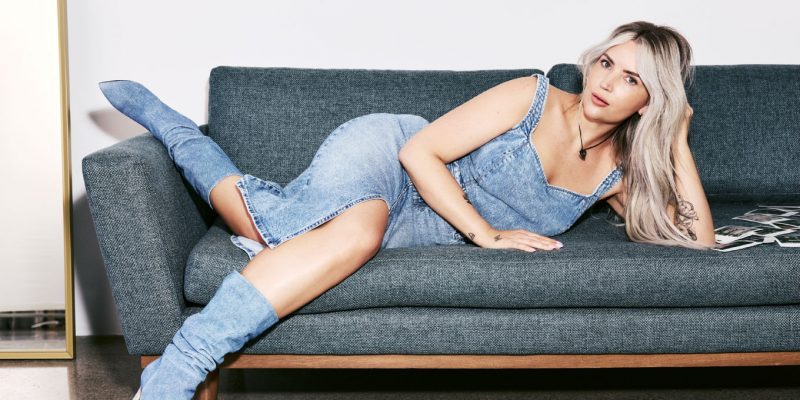
Fashion
Reitmans and The Birds Papaya Just Dropped The Dreamiest Spring Collection
Welcome to Sarah's Playhouse.
by : Melissa Fejtek- Apr 22nd, 2024
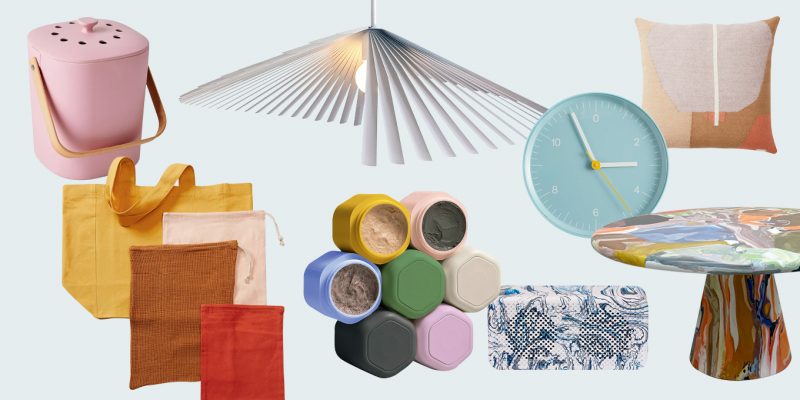
Decor
11 Zero Waste Decor Picks To Elevate Your Living Space
These brands are transforming waste materials into stylish products for your home.
by : Maca Atencio- Apr 22nd, 2024
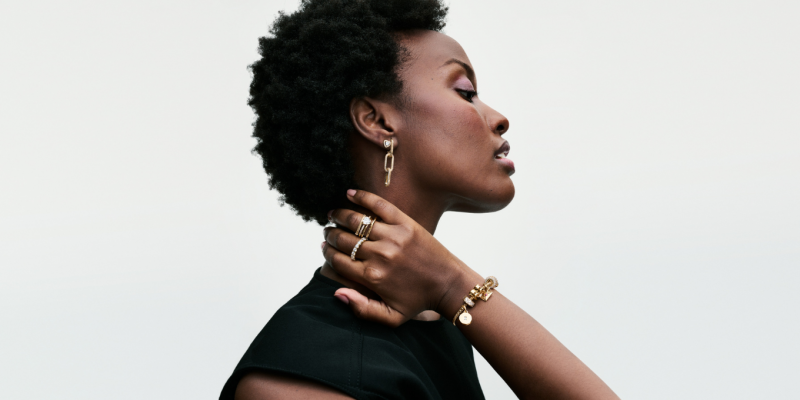
Fashion
This Jewellery Brand Has a Whole New Look And It’s Everything
Here are the seven pieces we’re coveting.
by : ELLE Canada- Apr 10th, 2024


